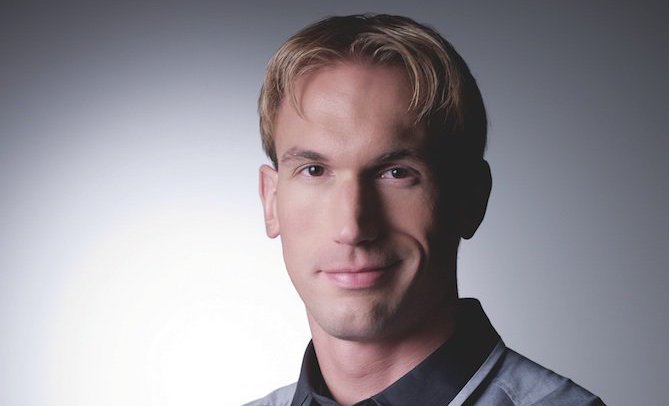Dr Christian on gay men and mental health

 At this weekend’s Being A Man festival at London’s Southbank, Dr Christian Jessen joins the All in the Mind? Men’s Mental Health panel. Here he writes about the mental health of gay men in modern Britain…
At this weekend’s Being A Man festival at London’s Southbank, Dr Christian Jessen joins the All in the Mind? Men’s Mental Health panel. Here he writes about the mental health of gay men in modern Britain…
Today, I’m chairing a panel discussing the culture of silence around men and mental health. This is taking place at the Being a Man festival, which aims to address the challenges and pressures of masculine identity in the 21st century; such challenges and pressures that must surely resonate with most gay men.
Or am I simply being guilty of the same sort of cultural stereotyping responsible for aforementioned pressures by even suggesting that gay men might be more affected than most by these issues? I’m not sure. I’ll let you know after the conference.
What I do know is that mental health is very much the final frontier to be explored when it comes to issues that men are not good at talking about. Research suggests that almost a third of all men would be too embarrassed to seek help for a mental health problem, and gay men and women (and when I say gay please also read queer, bi, questioning, pan or polysexual, intersex and two-spirit!) are particularly vulnerable to higher levels of anxiety, depression and suicidal feelings than heterosexual men and women. We also know that their rates of drug and alcohol misuse tend to be higher.
The origin of these problems is complex but there is no doubt that experiences of homophobic discrimination and bullying, and the general stigma felt by gay men, as well as a feeling of ‘not fitting in’ when growing up, all play a large part. The image of the happy-go-lucky gay boy relishing his party lifestyle may be a false one, and behind the laser-whitened smile lies considerable unhappiness, self-doubt and anxiety. The parties a possible symptom, or sign, of this, hinting at the far higher rates of self-destructive behaviour; substance abuse and sex addiction; and high levels of issues around intimacy and forming relationships.
But the truth is we do not really know the full extent of the problem as few patients disclose their sexuality during consultations, and more often than not healthcare staff feeling uncomfortable asking about it. And I’m also very aware as I write this that many gay men are growing increasingly annoyed at being treated like an addict, or with pity, if they enjoy going out partying now and again. It is a sensitive issue that gay men are naturally somewhat defensive about.
It seems that the latest bandwagon for us all to jump on, and certainly one that readily generates research grants for academics, is ‘chemsex,’ in itself a rather aggressive and provocative term, which, whilst definitely is a problem for some, is certainly not a problem for all, and it is important that we don’t start a judgmental, finger-pointing witch hunt that may result in all of us getting condemned and burned by our internalized prejudices. Having fought for so long for the right to be happy, now to be endlessly told by earnest clusters of academics that none of us actually are truly happy may seem rather a low blow, and start to wear rather thin. It’s all about perspective and it certainly should not be about fault or blame.
I don’t subscribe to the ‘lack of normal, healthy gay role models’ argument. Prominent, famous gay men and women have all, rightly or wrongly, had their various flaws and weaknesses exposed to the public, and to me this simply makes them more like the rest of us, and I find this reassuring, and engenders a sense of belonging, and not at all worrying, as so many people tell me it should be.
I would like to see more of us pulling together, to help each other, and not to bicker, loath, ostracize and further isolate those who most need our love and support. I hate the way we turn on each other with the slightest of misunderstood provocation, and the way we seem quite intentionally unwilling to correctly identify the true enemy. Bickering in the ranks weakens us, from the inside, and especially in the eyes of a public who we have been trying so hard to win over.
I don’t want to be looked at as a rare, delicate and damaged soul, but as a complex human being with strengths and weaknesses no greater or worse than any one else’s. We know of our increased risk of various problems, and our tendency to self-medicate, but we have fought a noble fight to be treated the same as everyone else. So, how about we treat each other the same too?
It may seem like a cold, brutal and frightening world on the outside, but it can be pretty bruising on the inside, too. I think we could do so much more to help ourselves, and each other than we do currently. And although it makes my buttocks clench uncomfortably to admit this, being the zealous atheist that I am, the biblical quotation ‘Do as you would be done by’ has never seemed more apt.
Words by DR CHRISTIAN JESSEN
Dr Jessen in on the panel for All in the Mind? Men’s Mental Health today, Friday 27 November, at the Southbank Centre’s Being A Man festival. The festival runs 27 to 29 November with talks, debates and performances from more that 150 speakers and performers. For the full programme, go to southbankcentre.co.uk/bam
Related:
Attitude is heading to London’s ‘Being A Man’ Festival
What does it mean to be a gay man in modern Britain?
